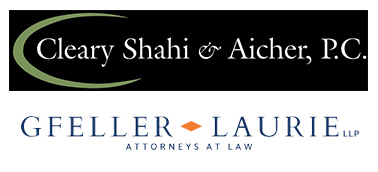January
2013
Contractor’s Principal’s Failure to Supervise Construction Does Not Justify Piercing Corporate Veil
In an unpublished decision issued January 3, 2013, the New Jersey Appellate Division held that the alleged breach of a promise made by the principals of a general contractor to personally supervise a residential construction project was not a violation of the New Jersey Consumer Fraud Act, and did not justify piercing the corporate veil to find the principals personally liable. Wiater Building & Design, Inc. v. Gutierrez, 2013 WL 28090 (N.J. App. Div., Jan. 3, 2013). A copy of the decision is available here.
This case started as so many similar cases do – with allegations that an extensive home renovation took too long and cost too much. Years later, the general contractor sued the homeowners for a small unpaid balance. The homeowners counterclaimed and then filed a third-party complaint against the general contractor’s principals. Notably, the homeowners sought relief under the New Jersey Consumer Fraud Act, which provides for treble damages in the event the contractor engages in certain proscribed business practices and allows for the corporate veil to be pierced in the case of an affirmative act or knowing omission by an individual. The homeowners alleged that the general contractor’s principals (with whom the homeowner had a longstanding professional relationship) had promised to personally oversee the construction, and alleged that the work was substandard and left incomplete due to the general contractor’s principals’ failure to so supervise the work. This obligation, however, was not contained in the construction contract.
All claims between the homeowners and the general contractor were eventually settled, except for the homeowners’ claim against the general contractor’s principals. The principals moved for summary judgment, which the trial court granted. On appeal, the Appellate Division held that there was no violation of the Consumer Fraud Act which would justify piercing the corporate veil and holding the general contractor’s principals personally liable. The court noted that the homeowners’ claims sounded “basically in contract,” and that the mere promise to personally supervise construction (especially when such promise was not contained in the contract itself) was insufficient to hold the principals personally liable.
While not especially groundbreaking, this case nicely illustrates the importance (not just to contractors, but for anyone wishing to avoid litigation) of ensuring that all obligations of anyone involved in construction are clearly stated in the construction contract, as an extrinsic promise not made part of the contract will likely be quickly forgotten, and given no effect by a court.







